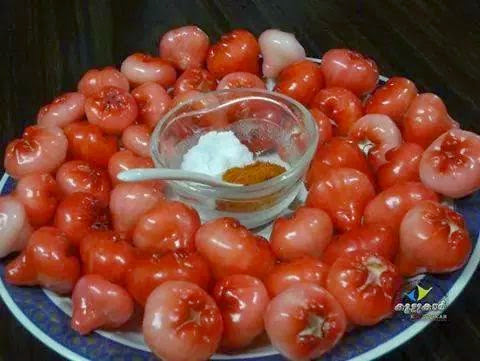This natural fruit called as Chambakka in malayalam and English name Rose Apple is organic and gives thiamin, nutrient C, calcium, magnesium, iron, potassium and sulfur. The rose apple likewise is a good source of fiber and is low in fat and calories, with 56 calories for every 100g of the eatable part of the plant.
Chambakka is principally eaten as a nourishments developed starting from the earliest stage to make pickles (chambakka achar) despite the name, rose apples are not related to roses or apples. In reality, rose apples are immovably related to guava, and despite the way that there are various species, the most consistently eaten grouping has the scientific name Syzygium samarangense. Regular names of Chambakka in English incorporate wax apple, Java apple, Semarang rose-apple and wax jambu
The plant is a hedge or a little tree that is truly nearby to Southeast Asia, yet it was spread all through the world as an intricate plant. Regardless, it is as of now saw as a nosy species, as it can create and spread quickly, marvellous close by greenery. It has various names, dependent upon which country you end up in. While rose apples look like guavas, they have a very surprising surface, flavor, and aroma without a doubt. Similarly, not in any manner like guava that has different seeds, this natural item has several gigantic, unarmored seeds in an open, central depression. Rose apples, which are ringer shaped in appearance, can either be eaten unrefined, like apples or can be used to set up a collection of dishes and desserts.





Post a Comment